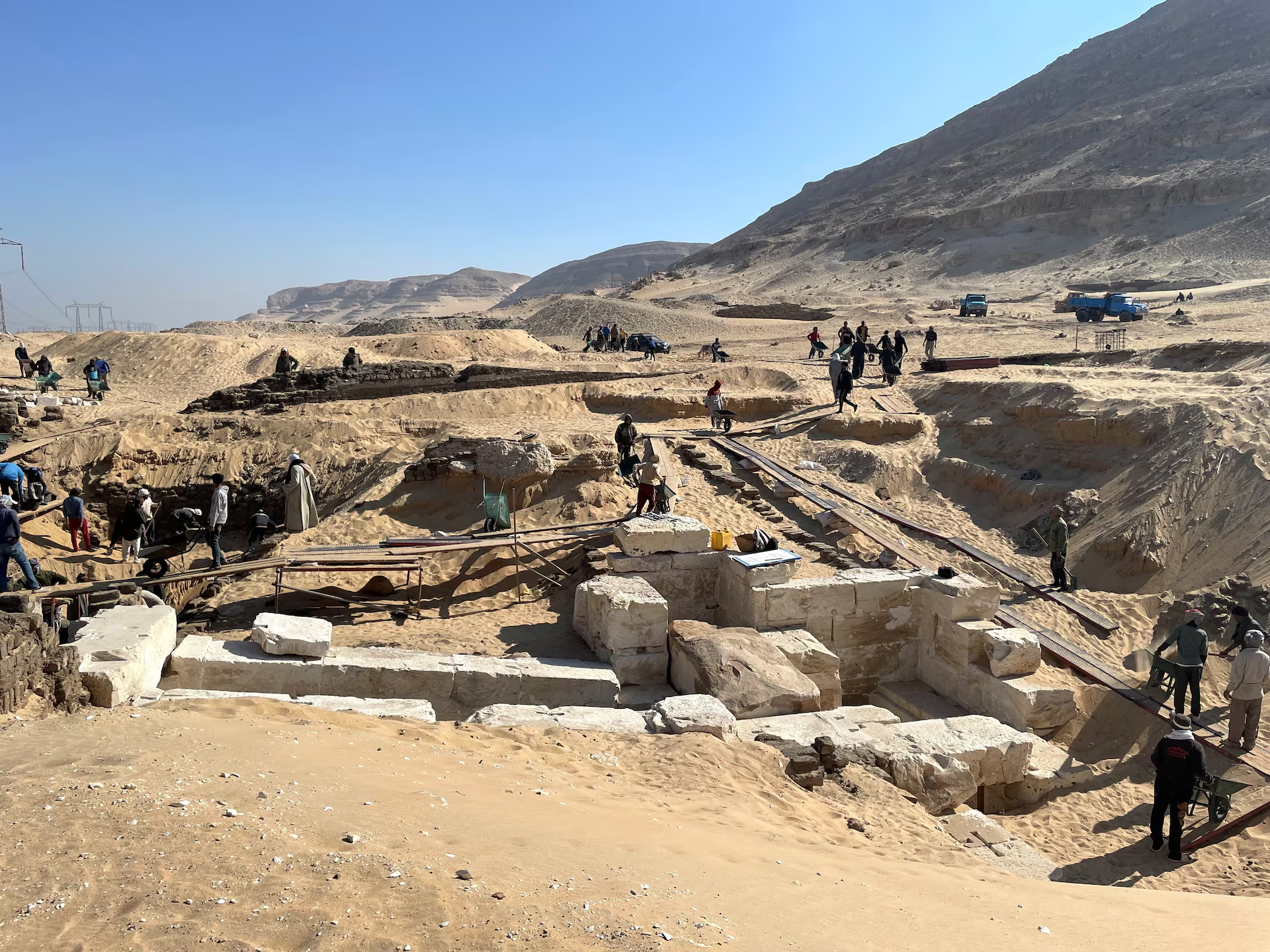Divers have discovered rare remains of a military vessel in the ancient sunken city of Thônis-Heracleion – once Egypt’s largest port on the Mediterranean – and a funerary complex illustrating the presence of Greek merchants, the country said on Monday.
The city, which controlled the entrance to Egypt at the mouth of a western branch of the Nile, dominated the area for centuries before the foundation of Alexandria nearby by Alexander the Great in 331 BC.

Destroyed and sunk along with a wide area of the Nile delta by several earthquakes and tidal waves, Thônis-Heracleion was rediscovered in 2001 in Abu Qir bay near Alexandria, now Egypt’s second largest city.
The military vessel, discovered by an Egyptian-French mission led by the European Institute for Underwater Archaeology (IEASM), sank when the famed temple of Amun it was mooring next to collapsed in the second century BC.
A preliminary study shows the hull of the 25-metre flat-bottomed ship, with oars and a large sail, was built in the classical tradition and also had features of Ancient Egyptian construction, Egypt’s tourism and antiquities ministry said.
In another part of the city, the mission revealed the remains of a large Greek funerary area dating back to the first years of the 4th century BC, it said.
“This discovery beautifully illustrates the presence of the Greek merchants who lived in that city,” the ministry said, adding that the Greeks were allowed to settle there during the late Pharaonic dynasties.
“They built their own sanctuaries close to the huge temple of Amun. Those were destroyed, simultaneously and their remains are found mixed with those of the Egyptian temple.”

Thônis-Heracleion was for centuries the largest Egyptian port on the Mediterranean Sea, prior to the founding of Alexandria by Alexander the Great in 331 BC. Several earthquakes, followed by tidal waves, triggered land liquefactions, causing a 110 square kilometer portion of the Nile delta, with the cities of Thônis-Heracleion and Canopus, to collapse into the sea.

Founded around 2,700 years ago on the site of present-day Abu Qir bay, 15 miles north-east of Alexandria, Thonis-Heracleion predated its better-known neighbour as the main emporion (trading port) for the region by several centuries and was a hub for international commerce.
Criss-crossed by a network of canals and dotted with harbours, wharves, temples and tower-houses – all joined together by a network of ferries, bridges, and pontoons – the city controlled most of the maritime traffic coming into Egypt from the Mediterranean. Goods would be inspected and taxed at the customs administration centre, and then carried on for distribution further inland, either at Naukratis – another trading port that lay almost 50 miles further up the Nile – or via the Western Lake, which was connected by a water channel to the nearby town of Canopus and offered access to many other parts of the country.
Although Thonis-Heracleion and Canopus are mentioned by many of the great chroniclers of antiquity, from Herodotus to Strabo and Diodorus, most detailed knowledge of their existence was feared to have been permanently lost.
Both cities were rediscovered by the IEASM in collaboration with the Underwater Archaeology Department of Ministry of Tourism and Antiquities, respectively in 2001 and 1999. (Agencies)








You must be logged in to post a comment.